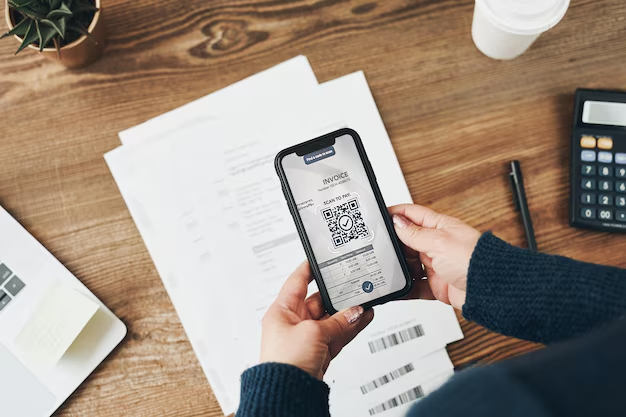Understanding Nevada State Sales Tax: The Comprehensive Guide You Need
When planning a trip to the vibrant state of Nevada or considering setting up a business there, one aspect that might intrigue you—or even perplex you—is the state's sales tax. While Nevada is known for its glimmering lights and entertainment hubs, understanding how sales tax functions in the state is essential for consumers and businesses alike. This guide will give you a comprehensive look at Nevada's sales tax system, offering insights, practical tips, and answers to common questions.
🎯 What Exactly is Nevada State Sales Tax?
Nevada's state sales tax is a consumption tax imposed on the sale of goods and services. It's collected at the point of purchase by the retailer and then passed on to the state. Unlike an income tax, which is levied on the amount of money you earn, a sales tax is applied to what you spend, making it a crucial consideration for budgeting your purchases.
The Basic Rate
As of the latest update, Nevada's statewide base sales tax rate stands at 4.6%. However, this isn't the whole story. Individual counties can impose additional local taxes, which means the effective sales tax rate can vary depending on where you are in the state.
Local Variations
Here's a simplified overview:
- Clark County (Las Vegas): The total sales tax rate is 8.375% due to added county taxes.
- Washoe County (Reno): It stands at 8.265%.
- Carson City: Here, you'll find a rate of 7.6%.
Understanding these local variations helps both consumers and businesses plan and manage their finances better.
📊 How Sales Tax Impacts Consumers
Everyday Purchases
Sales tax affects your daily life by increasing the cost of goods and services. From groceries to gadgets, almost every purchase in Nevada is subject to this tax. Here are some common transactions that typically include sales tax:
- Clothing and Apparel: Whether shopping for the latest fashion in Las Vegas or picking up essentials, sales tax applies.
- Electronics: Buying the latest smartphone or laptop? Tack on sales tax to the final price.
- Dining Out: From fast food to fine dining, prepared food is usually taxed.
However, there are exceptions and nuances to be aware of, which we will explore next.
Exemptions and Special Cases
Nevada offers several exemptions to its sales tax, primarily targeted at reducing financial burdens on specific consumer needs and stimulating sectors of the economy:
- Groceries: Basic food items and groceries are generally exempt.
- Prescription Medications: These are typically exempt, which helps reduce the cost of healthcare.
- Occasional Sales: Items sold at garage sales or property transferred through estate sales can qualify for exemption under certain conditions.
Understanding these exemptions can help you save money during your shopping experiences.
🚀 Navigating Sales Tax as a Business Owner
For businesses, sales tax involves more than just a mark-up on products; it's an integral part of compliance and accounting.
Registering for Sales Tax
Before you start collecting sales tax, your business must register for a sales tax permit. This registration process is done through the Nevada Department of Taxation. It's crucial to have this permit before conducting taxable sales to avoid penalties.
Collecting and Remitting Tax
Once registered, the responsibility lies in correctly collecting the right amount of tax depending on local rates and remitting it to the state. Businesses must file returns, usually monthly or quarterly, detailing the amount collected and remitted.
Keeping Comprehensive Records
Maintaining detailed records is essential for audits and tax filing accuracy. Businesses should keep:
- Sales reports
- Exemption certificates for tax-free sales
- Accounting records
Good record-keeping helps minimize errors and ensures compliance with state laws.
🤝 Strategies for Consumers and Businesses to Manage Tax Effectively
Smart Consumer Strategies
- Plan Purchases: High-value items such as electronics or appliances are subject to significant sales tax. Timing your purchases around sales events or exemptions can mitigate costs.
- Track Exemptions: Being aware of product exemptions can lead to smart shopping decisions, especially if you're budget-conscious.
Business Insights
- Use Technology: Leverage accounting software to automate tax calculation, collection, and filing processes, reducing errors.
- Consult Professionals: Hiring a tax professional can provide tailored advice, especially for complex tax situations.
📋 Quick Reference Summary: Sales Tax Key Points
Here’s a handy reference with essential tips and key takeaways:
- ✨ Basic State Rate: 4.6% statewide, varying by county.
- 👕 Common Taxed Items: Apparel, electronics, dining.
- 🥦 Exemptions: Groceries and prescription medications.
- 🗓️ Business Requirement: Register for a sales tax permit before sales.
- 📈 Filing Frequency: Monthly or quarterly, based on turnover.
🌟 Bringing It All Together
Understanding Nevada’s sales tax isn't just a matter of compliance; it’s about equipping yourself with the knowledge to make informed financial decisions. For consumers, this understanding can lead to significant savings over time through aware purchasing and exemption utilizations. Business owners, on the other hand, can maintain compliance, avoid penalties, and optimize their pricing strategies.
Whether you find yourself captivated by the bustling streets of Las Vegas or thriving in the growing city of Reno, keeping the ins-and-outs of Nevada’s sales tax system at your fingertips will undoubtedly benefit your economic journey in the Silver State. With these insights, you can confidently navigate the landscape of Nevada sales tax, empowering both consumer and entrepreneurial aspirations.

Related Topics
- Can I Deduct Vehicle Sales Tax On My Federal Return
- Do Gross Sales Include Sales Tax
- Do I Need To Collect Sales Tax For Selling Online
- Do You Pay Sales Tax At The Dealership Or Dmv
- Do You Pay Sales Tax On a House
- Do You Pay Sales Tax When You Buy a House
- Does Alaska Have a Sales Tax
- Does Arizona Have Sales Tax
- Does Canada Have Sales Tax
- Does Florida Have Sales Tax
